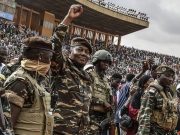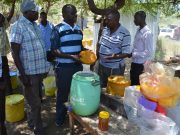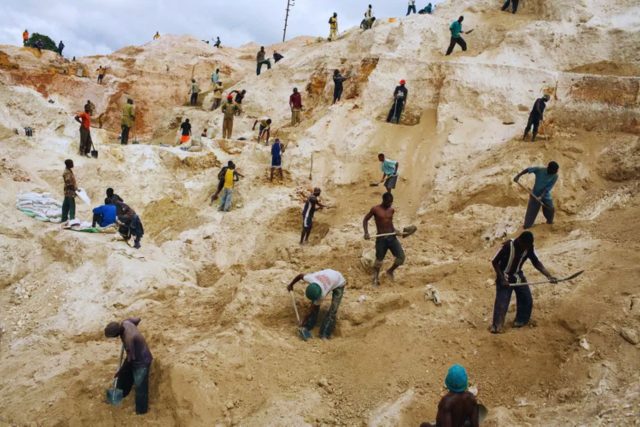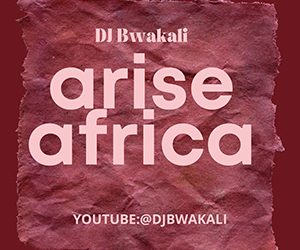The Day the Earth Swallowed Futures
What happened in Kalando was not a tragedy of nature. It was a failure of duty. Dozens of miners died when a makeshift bridge at the copper and cobalt site collapsed under a panicked crowd after soldiers allegedly fired shots and terrified artisanal miners stampeded across a structure that had already been weakened by heavy rains. The government claims the miners were trespassing in a forbidden zone. Community witnesses insist that reckless gunfire triggered the chaos that led to the collapse. The death toll ranges anywhere between 30 and 80, depending on who is telling the story. But the truth is brutally simple. Human beings died at a mine that generates wealth for powerful owners, including reported Chinese interests. And when a mine profits from the earth, it must also take responsibility for the lives lost on that earth. Regardless of who fired the shots, who built the bridge, or which number becomes official, the families of the dead must be fully compensated by those who own and operate Kalando Mine.
When tragedy strikes a mine, it does more than collapse rock. It collapses futures. It collapses the fragile balance of families that depended on a single income to keep hunger away and dignity intact. The Kalando Mine tragedy stole fathers, mothers, sons, daughters, and the fragile dreams that lived inside them.
This is why the deaths at Kalando are not a local issue or a brief headline. They are a wound. A deep one. And when a wound of this nature is ignored, it festers into generations of injustice and poverty. That’s why we must refuse to normalize preventable loss of life. The victims of Kalando deserve compensation. Full, fair, transparent compensation backed by law, by morality, and by the precedents written across Africa and the world.
The World Has Shown Us What Must Happen After Mine Deaths
Whenever I look at many mining disasters in other parts of the world, I notice the same pattern. Death happens. Families grieve. Then the law steps forward to compensate those families. Whoever profits from labour must carry responsibility for the lives lost while generating that profit.
This is not theory. It is history.
In South Africa, the Vaal Reefs disaster killed 104 miners in 1995. The mining sector established a trust to support the families of the dead in South Africa, Lesotho, Mozambique, Botswana, and Eswatini. Children went to school through that trust. Widows rebuilt their lives through that money. No one said it would replace the dead, but everyone understood that a workplace disaster creates a debt that must be paid.
Another example is the Tshiamiso Trust, which continues to compensate thousands of Southern African mineworkers or their dependents for silicosis and tuberculosis. Even when the miners died long before the trust was created, their families still receive what is owed. This is justice that reaches backward to heal what negligence created.
And when we look beyond Africa, the picture becomes even clearer. In Brazil, the Brumadinho collapse killed nearly 270 people. The mining giant Vale committed billions of dollars in compensation and community reparations. The Mariana disaster in the same country led to settlements that stretch into tens of billions. Even in Ukraine, after the Zasyadko explosion killed more than 100 miners, compensation was announced within days.
These are not exotic examples. They are proof that the world understands a simple truth. When mines take life, compensation follows. Kalando Mine cannot be the exception. The families cannot be told to move on and accept silence.
A Mine That Profits Must Also Protect
The logic is as old as labour itself. If a mine earns from your sweat, it must safeguard your life. Mining companies benefit from the minerals that workers release from the earth. They benefit from every ounce of iron, gold, copper, or coal that leaves the ground. That benefit comes with a responsibility that does not disappear when things go wrong.
Kalando Mine benefited from those who worked there. Their lives created value. Their deaths created a moral, legal, and financial obligation.
Whenever a mine accident kills, it is rarely a stroke of fate. It is often the result of failed safety systems, absent emergency measures, neglected inspections, or ignored warnings. When systems of protection fail, compensation follows as the remedy. It is not a gift. It is not generosity. It is the price of negligence.
This principle is the backbone of every responsible mining jurisdiction on earth. It is written into international standards and into every compensation scheme from South Africa to Brazil. It applies to Kalando as strongly as it applies anywhere else.
Compensation Is the Minimum Expression of Justice
Money does not resurrect the dead. It does not fill the empty chair at the dinner table. It does not stop a child from waking at night, wondering why a parent never came home.
Yet compensation matters. It steadies a family that was pushed into chaos. It prevents the tragedy from haunting the living with poverty. It protects children from dropping out of school, parents from sinking into destitution, and households from breaking under the sudden weight of loss.
Compensation is not charity. It is justice measured in coins because life cannot be returned. It is a society saying we recognize what was taken, and we will not abandon those left behind.
If Kalando Mine walks away without taking responsibility, then a dark message settles over Congo and Africa. It says that African workers can die without consequence. It says that companies can grow rich through labour but bear no duty when that labour ends in death. That message is unacceptable.
Africa Must Stand With Kalando’s Families
The Kalando Mine tragedy is a mirror placed before us. It asks whether African life carries value. It asks whether the poor must grieve in silence while corporations continue operations as if nothing happened. It asks whether death in the workplace will become a quiet footnote or a call to accountability.
The families of the victims deserve compensation. They deserve clarity. They deserve justice that heals the wound rather than deepens it. Nothing can bring their loved ones back. Yet something can ease their journey forward. The world has shown us what must be done. Africa itself has shown us what must be done. It is now Kalando Mine’s turn to step forward, acknowledge the debt created by these deaths, and pay what justice demands.
And Africa must stand with these families until the final payment is made.
djbwakali@gmail.com

























